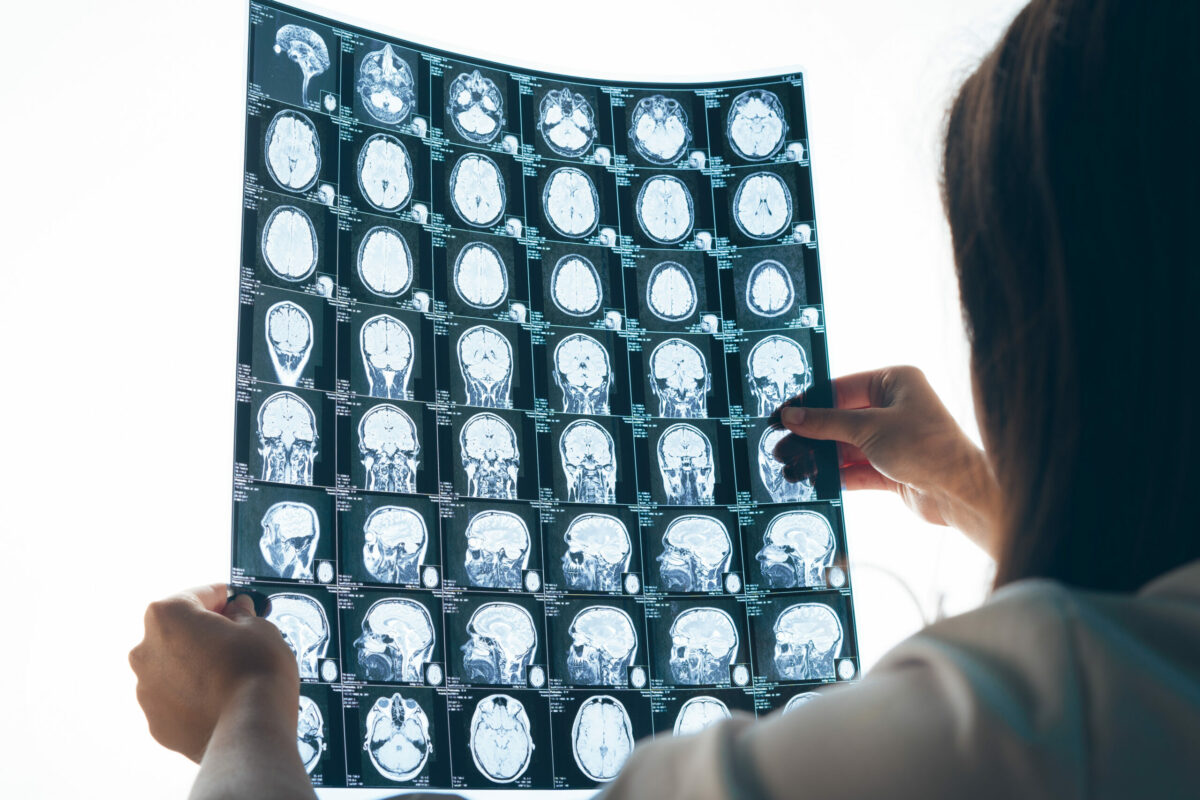A medical term that describes a group of brain conditions that affect the brain’s temporal and frontal lobes is called frontotemporal dementia (FTD). Frontal and temporal brain areas are associated with behavior, language, and personality.
In people with FTD, some parts of these lobes tend to shrink (atrophy), which causes symptoms depending on the part of the brain that is affected. For instance, some people with FTD develop personality changes. As a result, they become socially inappropriate, impulsive, or emotionally indifferent. Other people may experience problems with the ability to use language correctly.
Many times, this condition is misdiagnosed as another mental disorder or Alzheimer’s disease. However, FTD happens mostly at a younger age than Alzheimer’s disease and mostly occurs between 40-65 years old but may appear later in life too. Approximately 20% of dementia cases are caused by FTD.
Symptoms
The symptoms caused by FTD are different among people because it depends on the part of the brain that is affected. Moreover, people with FTD tend to have more symptoms at the same time. Check below some symptoms:
Behavioral Changes
Significant changes in personality and behavior are the most common symptoms of FTD. For example:
- Compulsive behaviors (including smacking lips continuously, clapping, tapping, and others)
- Poor personal hygiene
- Eating objects
- Eating habit changes including overeating of sweets and carbohydrates
- Compulsive desire to put different things in the mouth
- Apathy
- Loss of inhibition and empathy
- Inappropriate social behavior
- Lack of judgment
Speech and Language Symptoms
There are some FTD subtypes that cause loss of speech or language ability changes. These include primary progressive aphasia, semantic dementia, and progressive agrammatic aphasia (also called progressive nonfluent aphasia). Check below some symptoms caused by previous conditions:
- Inability to find the right words to use in speech. They also begin difficulty understanding and using written and spoken language.
- Problems with naming things
- Not knowing word meanings
- Frequent mistakes in sentence building
Movement Conditions
Some rare FTD subtypes may cause movement problems similar to Parkinson’s disease or amyotrophic lateral sclerosis (ALS). Check below some symptoms:
- Poor coordination
- Muscle weakness
- Swallowing problems
- Muscle spasms or twitches
- Rigidity
- Tremors
- Falls or walking problems
Causes
Experts do not know the exact cause that triggers changes in the frontal and temporal lobes of the brain. However, some genetic mutations (changes) are linked with FTD but most people with this condition do not have a family history of dementia.
While some research showed that certain genetic changes present in people with FTD are also noticed in those who suffer from ALS (amyotrophic lateral sclerosis). In any case, more research is needed to understand the connection between these conditions.
The only risk factor that puts you at higher risk of developing FTD is a family history of dementia. Other risk factors are not known.
Diagnosis
Commonly, it is quite difficult to diagnose this condition because there are many others that cause similar symptoms. To confirm the condition doctors need to perform different tests and consider the symptoms and your family history. Check below some tests used to diagnose FTD:
Blood Tests
Doctors perform these tests to exclude other conditions that may cause similar symptoms. These include kidney disease, liver conditions, and others.
Sleep Study
There are some symptoms of obstructive sleep apnea very similar to FTD. For example thinking changes, memory problems, and others. Doctors perform this test to check for loud snoring, pauses in breathing during sleep, and other symptoms.
Neuropsychological Testing
This test is used to check memory skills and it can determine which type and stage of dementia you experience.
Brain Scans
The following tests help get detailed images of the brain that help identify bleeding, tumors, or clots. For example:
- MRI (magnetic resonance imaging) scan – This test uses radio waves and strong magnetic fields to create detailed images of the brain. It may help determine the size and shape of the frontal and temporal lobes of the brain. Moreover, an MRI may be used to determine other health conditions as well.
- FDG-PET (fluorodeoxyglucose positron emission tracer) scan – It is a test that uses a small amount of radioactive substance that is injected into the blood. This substance helps doctors determine the brain areas where nutrients are poorly metabolized.
Treatment
Nowadays, there are no treatment options for FTD but research into treatments is ongoing. Moreover, Alzheimer’s disease medications are not effective for FTD and even may worsen the symptoms. Check below some medicines that may help lessen behavioral symptoms:
- Antidepressants – Doctors usually prescribe Trazodone to lessen behavioral symptoms and selective serotonin reuptake inhibitors (SSRIs) including Paroxetine, Escitalopram, Citalopram, or Sertraline.
- Antipsychotics – These include Olanzapine and Quetiapine. However, these medications should be used carefully in people with dementia because may cause severe adverse reactions (including an elevated risk of death).
Therapy
People who experience problems with language may need speech therapy that helps people learn communication aids.
Home Remedies
Usually, when FTD symptoms worsen, you will need a caregiver’s help. They may help you with your daily routine, provide transportation, and maintain your safety. Moreover, it is very important to get regular cardiovascular exercise to improve your mood and thinking skills.
In addition, you should take certain steps at home that reduce the chances of injuries. Check below some tips that may help make daily tasks easier:
- Try to keep a calm environment
- Simplify daily tasks
- Redirect or distract attention from potentially harmful or inappropriate behaviors
- Provide structured routines
- Avoid activities or events that may cause unwanted behavior
Frequently Asked Questions
What is the life expectancy of people with FTD?
Commonly, those who suffer from this condition live between 6-8 years. Many people die usually due to the advanced stage of the disease.
What are the symptoms of FTD?
These include:
- Speaking problems
- Using words incorrectly
- Lack of interest in other people
- Reduced energy and motivation
- Apathy
- Reduced self-awareness
- Impaired judgment
If you notice a loved one develop previous symptoms, immediately contact a healthcare professional.
What are the possible complications of FTD?
- Inappropriate behavior
- Eating habit changes
- Stiffness
- Muscle weakness
- Poor coordination
- Dysphagia
- Slurred speech
- Infections
- Other mental disorders (such as depression)
Immediately visit a doctor if any of the previous complications occur. If you have any other questions, ask your healthcare provider.




